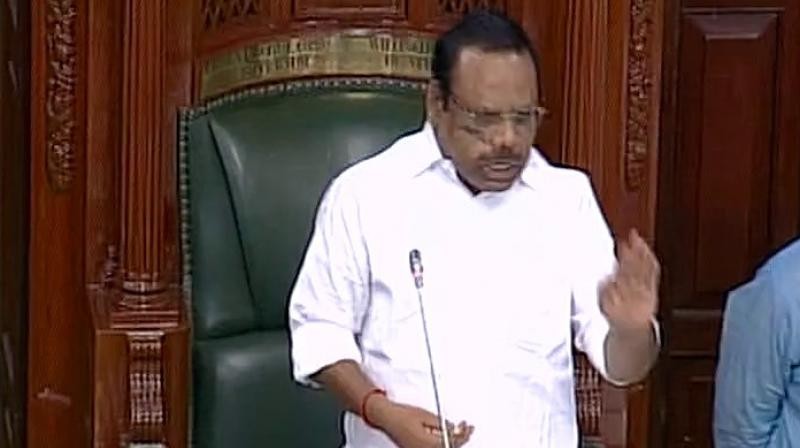
Chennai: Tamil Nadu Assembly Speaker P Dhanapal was well within his powers in referring the issue of DMK members displaying banned gutka pouches inside the House to the Privileges Committee, the Madras High Court was informed by Assembly Secretary K Boopathy today.
The Speaker was of the prima facie opinion that acts of the petitioners involved a question of breach of privilege.
Hence, in accordance with the powers vested in him, he referred the issue to the Privileges Committee for examining, investigating and reporting on it.
Dhanapal did not take any hasty or unilateral penal action, the secretary contended in his counter.
On July 19, DMK MLAs had displayed gutka sachets in the Assembly claiming that the tobacco product was being illegally sold in Chennai despite a ban.
Last month, DMK MLAs, including Leader of the Opposition M K Stalin had moved the Madras High Court, seeking to declare a showcause notice issued by the House Privileges Committee against them as “illegal”.
DMK MLA K S Ravichandran had contended in the high court that the issue could have an impact in the event of a floor test in the House.
On August 28, the Privileges Committee, led by Deputy Speaker and chairman of the panel, Pollachi V Jayaraman, had issued notices to Stalin and 20 other DMK MLAs, seeking their explanation within a week.
In his counter, Boopathy said all the 21 MLAs were called upon to offer their explanation for exhibiting Gutka inside the House.
Quoting constitutional provisions on the powers, privileges and immunity of the Assembly, he said issuance of notice was within the jurisdiction of the House.
The freedom of speech of a member is subject to such reasonable restrictions as may be imposed by the Speaker, he said.
“By no stretch of imagination could the freedom of speech be extended to disorderly conduct like displaying the banned items inside the House,” he submitted.
Also, an extension of seven days was provided to members to answer to the notices and hence appropriate time was given to the members, he said.
The Privileges Committee had not decided anything on the issue and had just called for an explanation from the petitioners, he said.
“It is incorrect to allege that the issue was referred to the Committee of Privileges with the sole motive of preventing them from exercising their legal and constitutional right to vote in the floor test,” he noted in his reply.


.jpeg)

